
What is a home equity line of credit (HELOC) and what can it be used for?

Putting home ownership within reach for a diverse workforce

What’s the difference between Fannie Mae and Freddie Mac?

Tips for realtors to help clients get their homeownership goals back on track

How jumbo loans can help home buyers and your builder business

Simple steps to be ready for a natural disaster

Checklist: financial recovery after a natural disaster

Pros and cons of a personal line credit

3 tips for saving money when moving to a new home

5 ways to maximize your garage sale profits

What you need to know about renting

What’s a subordination agreement, and why does it matter?

Checklist: 10 things to look for when touring a home

How to sell and buy a home at the same time

Mortgages after retirement: Here’s what to know

Dear Money Mentor: What is cash-out refinancing and is it right for you?

Home improvements with the best ROI

Overcoming high interest rates: Getting your homeownership goals back on track

How we did it: Converted to solar power

PCS moving checklist for military spouses and families

For today's homebuyers, time and money are everything

Crypto + Homebuying: Impacts on the real estate market

Should you buy a house that’s still under construction?

How I did it: Bought my dream home using equity

Buying a home Q&A: What made three homeowners fall in love with their new home

House Hacks: How buying an investment property worked as my first home

Managing the impacts of appraisal gaps in a hot housing market

How I did it: Built living spaces to support my family

Spring cleaning checklist for your home: 5 budget-boosting tasks

Bringing economic opportunity to underserved communities one home at a time

Community activist achieves dream of homeownership

Saving for a down payment: Where should I keep my money?

Your guide to breaking the rental cycle

DIY home projects 101: tips from a first-timer

Checklist: 6 to-dos for after a move

What are conforming loan limits and why are they increasing

Military homeownership: Your guide to resources, financing and more

Uncover the cost: Building a home

How I did it: Bought a home without a 20 percent down payment

The lowdown on 6 myths about buying a home

Home buying myths: Realities of owning a home

4 ways to free up your budget (and your life) with a smaller home

Get more home for your money with these tips

Money Moments: Tips for selling your home

Money Moments: How to finance a home addition

How I did it: My house remodel

Are professional movers worth the cost?

First-time homebuyer’s guide to getting a mortgage

Dear Money Mentor: When should I refinance a mortgage?

Beyond the mortgage: Other costs for homeowners

Quiz: How prepared are you to buy a home?

What is a mortgage?

Building a dream home that fits your life

10 ways to increase your home’s curb appeal

10 questions to ask when hiring a contractor

5 things to avoid that can devalue your home

How you can take advantage of low mortgage rates

What is an escrow account? Do I have one?

Is it the right time to refinance your mortgage?

What to know when buying a home with your significant other

What is refinancing a mortgage?

These small home improvement projects offer big returns on investment

Should you get a home equity loan or a home equity line of credit?
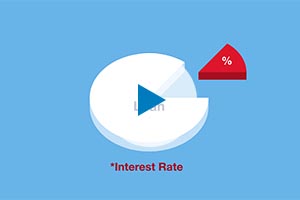
Mortgage basics: What’s the difference between interest rate and annual percentage rate?

Mortgage basics: What is refinancing, and is it right for you?

Mortgage basics: Prequalification or pre-approval – What do I need?

Mortgage basics: How much house can you afford?
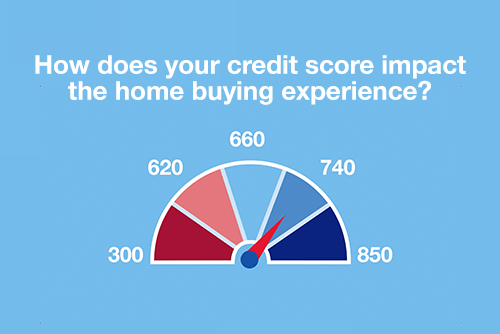
Mortgage basics: How does your credit score impact the homebuying experience?
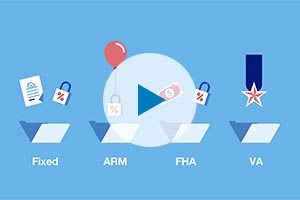
Mortgage basics: Finding the right home loan for you

Mortgage basics: Buying or renting – What’s right for you?
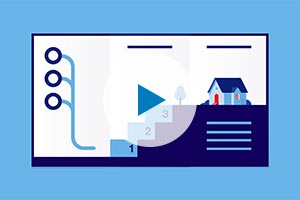
Mortgage basics: 3 key steps in the homebuying process

Is a home equity line of credit (HELOC) right for you?

How to use your home equity to finance home improvements

How does a home equity line of credit (HELOC) work?

Home equity: Small ways to improve the value of your home

Can you take advantage of the dead equity in your home?

8 steps to take before you buy a home

6 questions to ask before buying a new home

4 questions to ask before you buy an investment property

10 uses for a home equity loan
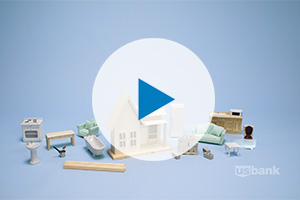
Uncover the cost: Home renovation

Improving your credit score: Truth and myths revealed

